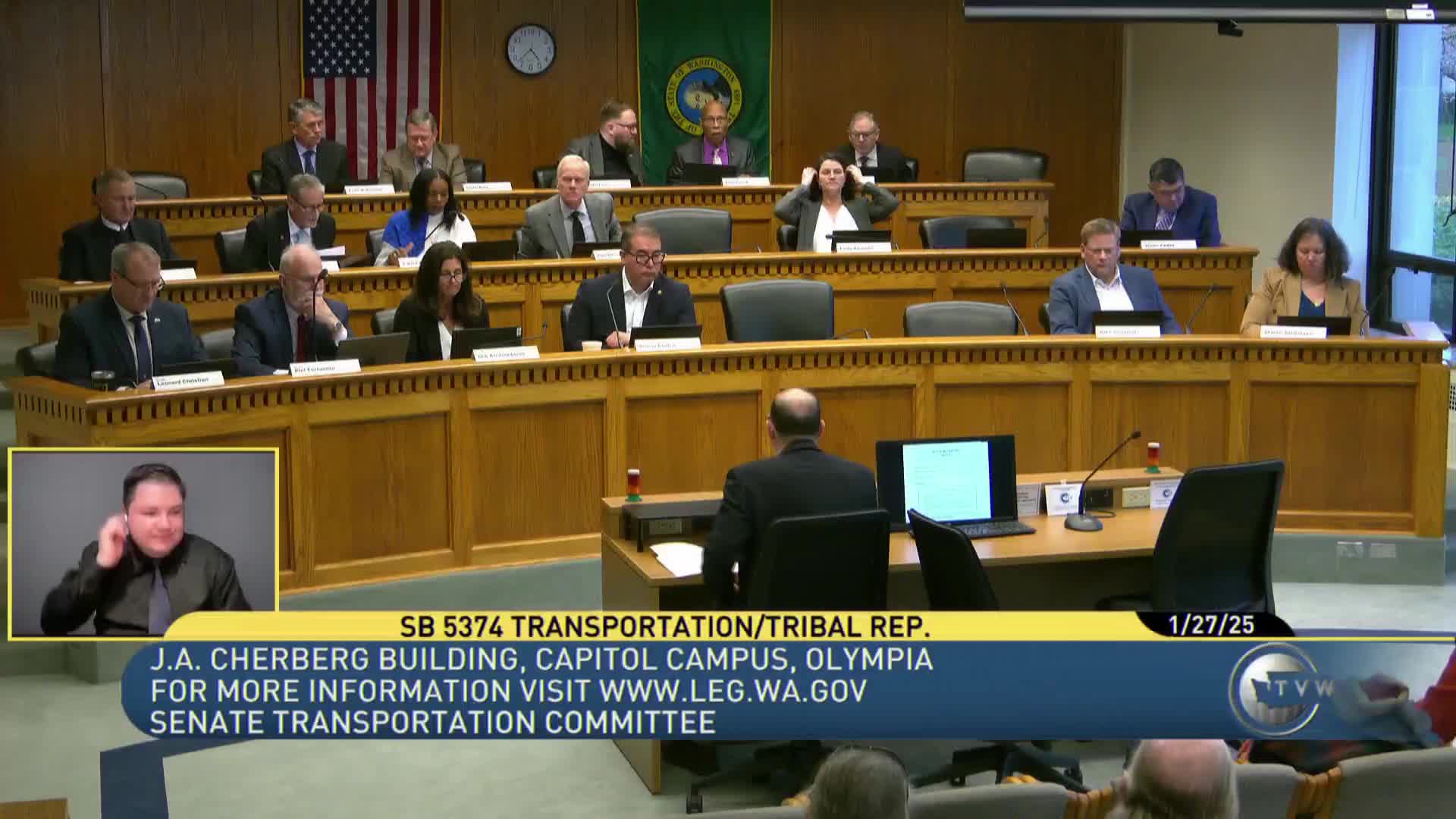Bill would codify tribal coordination in local transportation planning and create tribal traffic safety coordinator program
Get AI-powered insights, summaries, and transcripts
Subscribe
Summary
SB 5374 would require county and city transportation planning to coordinate with affected tribal governments, add a tribal seat to a safety council and establish a tribal traffic safety coordinator program at the Traffic Safety Commission; commission staff estimated startup costs of roughly $1 million.
Senate Bill 5374, which would require tribal government coordination or representation in certain local and state transportation planning activities, received a public hearing before the Senate Transportation Committee on Jan. 27, 2025.
Kelly Simpson, committee staff, said the bill would amend local comprehensive-plan intergovernmental coordination requirements under the Growth Management Act so that they explicitly include coordination with affected tribal governments on transportation impacts and needs. The bill would also require counties’ six-year transportation programs to be prepared in coordination with affected tribal governments.
The bill would add a tribal representative position on the Cooper Jones Active Transportation Safety Council and establish a tribal traffic safety coordinator program at the Washington Traffic Safety Commission to help tribes implement traffic safety strategies. Mark McKechnie, external relations director for the Traffic Safety Commission, told the committee the commission had included a fiscal estimate of just over $1,000,000 to establish the new tribal traffic safety program; about 60% of that would be state funding and 40% federal, per the fiscal note described at the hearing.
Sen. Claudia Kauffman, prime sponsor, framed the bill as a response to high traffic fatality rates among American Indian and Alaska Native residents and the need for “meaningful role[s]” for tribes in planning and safety initiatives. Kauffman said the measure recognizes tribal sovereignty and seeks to ensure tribal perspectives are reflected in transportation projects that affect tribal lands and nearby communities.
Alex Swanson of the Association of County Engineers testified in favor and asked to work with the sponsor to align statutory cross-references and technical assistance language to maintain consistent process across counties and tribes. The association recommended crosswalking the new coordination language with existing statutes governing the GMA and six-year transportation programs and using Commerce’s technical assistance provisions (RCW 36.70A.190) to support jurisdictions.
Commission staff emphasized data included in the Target Zero update showing disproportionate per-capita traffic fatality rates for Native American and Alaska Native residents and said many tribal-related fatalities occur on county roads and state routes outside tribal lands. Mark McKechnie urged the committee to work with the sponsor to clarify roles and language in section 5 of the draft bill.
Testimony included supportive comments from county engineers and the Traffic Safety Commission; remote public testimony raised local concerns about how coordination would affect specific corridor decisions. The committee did not record a vote on SB 5374 during the hearing and staff and sponsors said they would continue to refine statutory language with stakeholders.
